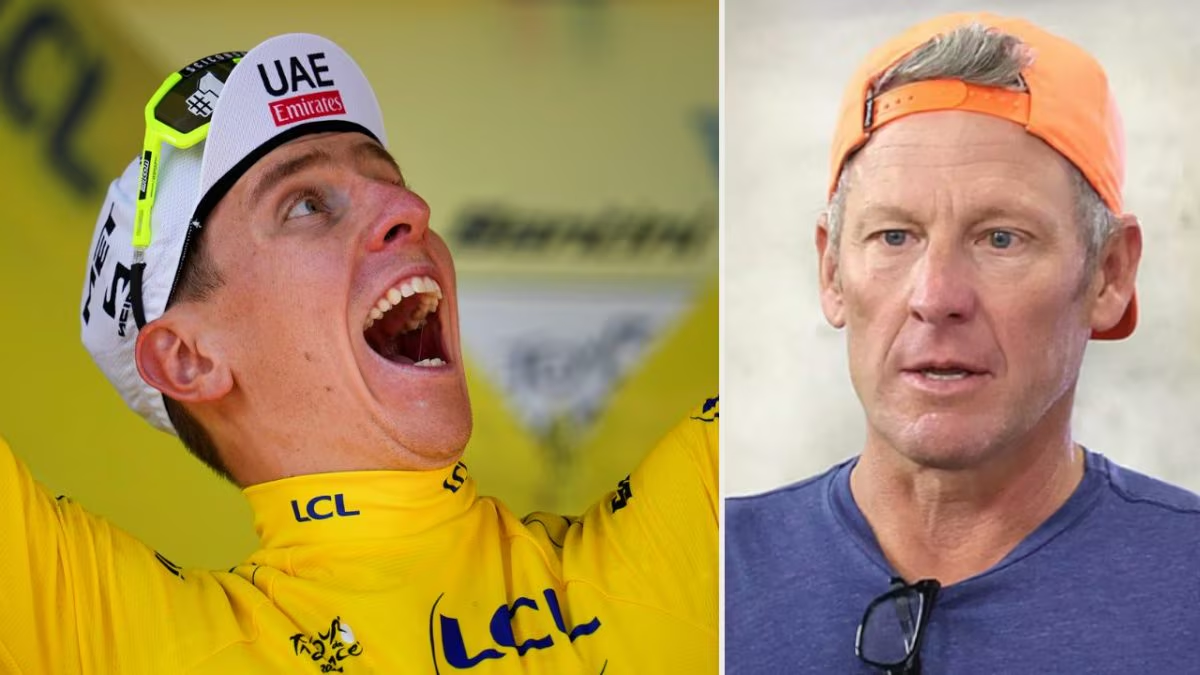
Breaking News: “It Makes Me Angry – I Will Never Apologize to Tadej Pogačar,” Lance Armstrong Declares Due to Ongoing Feud
In a dramatic and heated statement, former cycling legend Lance Armstrong has declared that he will never apologize to current cycling sensation Tadej Pogačar. Armstrong, who remains one of the sport’s most controversial figures, lashed out during a recent interview, citing deep-rooted frustrations and personal reasons behind his refusal to reconcile with the young Slovenian star.
Armstrong’s Fiery Remarks
During the interview, Armstrong didn’t hold back, stating, “It makes me angry. I will never apologize to Tadej Pogačar.” His tone was sharp, underscoring the tension between the two. Armstrong, who dominated the sport for years before being stripped of his seven Tour de France titles due to a doping scandal, seems to harbor resentment towards Pogačar, who has taken the cycling world by storm with his clean and remarkable performances.
Though Armstrong didn’t delve into specifics during the interview, sources close to the situation believe that the feud may stem from recent comments made by Pogačar regarding Armstrong’s legacy in the sport. Pogačar, who has won two Tour de France titles, is often regarded as one of the sport’s cleanest athletes in an era that has distanced itself from the doping scandals of Armstrong’s time.
The Source of Armstrong’s Anger
Armstrong has long been a polarizing figure, and it’s no secret that he’s sensitive when it comes to how the cycling community views his legacy. For years, Armstrong fought to maintain his innocence amid accusations, only to admit to doping in a 2013 interview with Oprah Winfrey. Despite this, Armstrong has often sought respect from the next generation of riders. It’s believed that Pogačar’s public stance on anti-doping measures and his criticism of past practices may have struck a nerve.
For Armstrong, the issue seems personal. He added in the interview, “I know the path I walked, and I don’t owe an apology to anyone, especially not to a guy who doesn’t understand what it takes to stay at the top.” This suggests that Armstrong believes Pogačar, despite his successes, may not fully grasp the pressures of cycling’s golden era, where doping culture was rampant.
Pogačar’s Perspective
Tadej Pogačar, meanwhile, has largely avoided direct confrontation with Armstrong. Known for his humility and sportsmanship, Pogačar has focused on setting an example for the future of the sport. His clean reputation and commitment to fair play have been praised by fans and fellow riders alike. When asked about Armstrong’s statements in the past, Pogačar simply mentioned that he strives to compete in the “right way” and isn’t concerned with the actions of past riders.
Pogačar’s subtle distancing from Armstrong’s era and his outspoken advocacy for a clean sport are likely contributing factors to Armstrong’s frustration. The generational clash between the two cyclists, representing a tainted past versus a hopeful future, has continued to build tension.
The Cycling Community Reacts
Armstrong’s refusal to apologize has sparked a wave of reactions from the cycling world. Some support his decision, arguing that he’s served his punishment and has no reason to seek forgiveness. Others, however, believe that a gesture of reconciliation with young riders like Pogačar could help repair Armstrong’s tarnished legacy.
Fans of the sport are now left wondering if the situation will escalate further, or if Pogačar will continue to rise above the conflict. With the two athletes representing such different eras in cycling, it’s unlikely that they’ll ever see eye to eye.
What’s Next for Armstrong and Pogačar?
For now, it appears Armstrong has drawn a line in the sand, making it clear that he has no intention of offering an apology to Tadej Pogačar. As for Pogačar, his focus remains on his future in the sport, as he continues to dominate and inspire a new generation of cyclists.
This feud may represent more than just a personal spat—it highlights the broader divide between cycling’s past and present, as the sport works to move on from its troubled history while still grappling with its legacy.
Leave a Reply